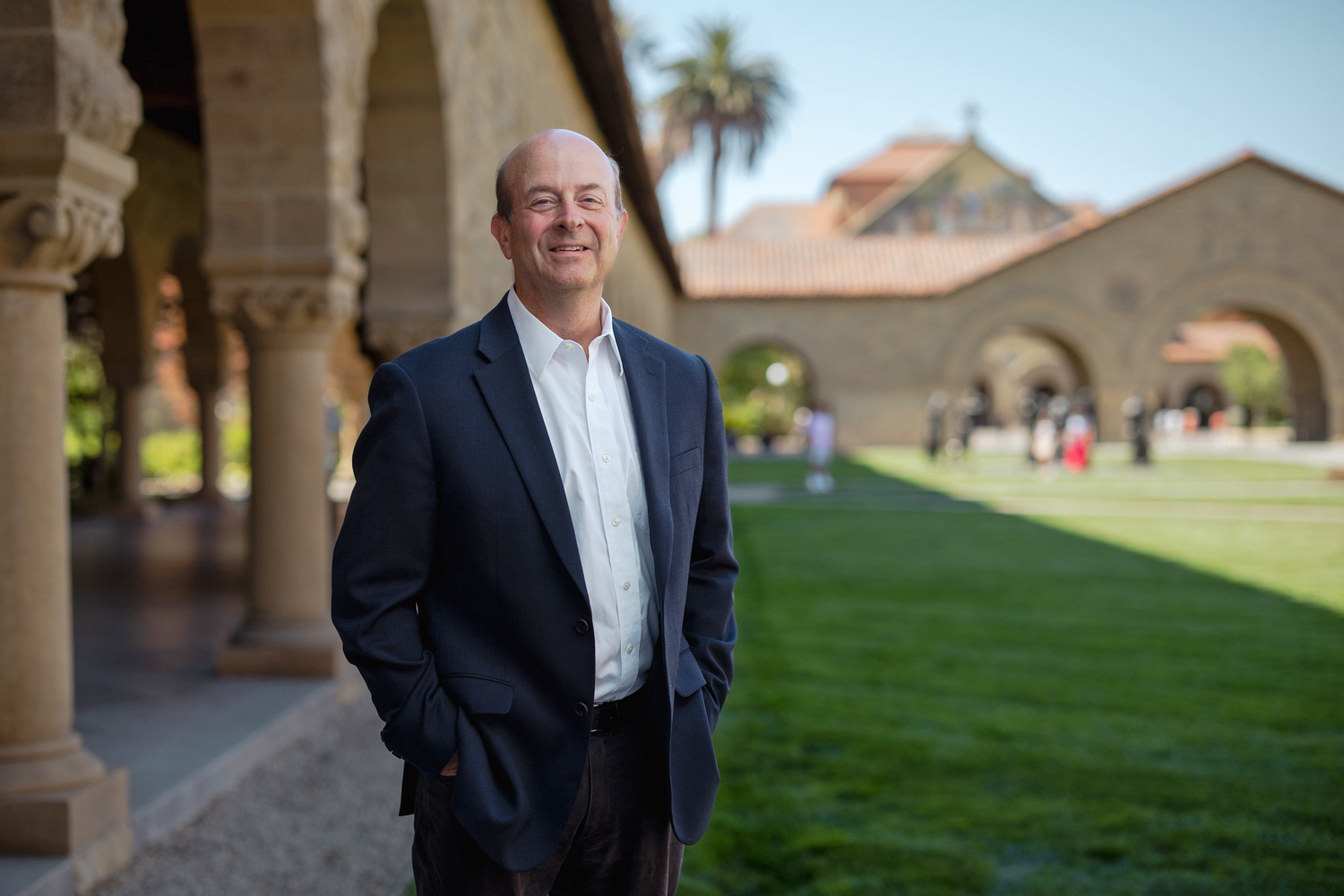Jay Hamilton, the Hearst Professor of Communication and director of the Stanford Journalism Program in the School of Humanities and Sciences (H&S), has been appointed the Freeman-Thornton Vice Provost for Undergraduate Education, effective Jan. 1, 2025.
“I’m delighted that Jay has agreed to become the next vice provost for undergraduate education,” Provost Jenny Martinez said. “Jay cares deeply about our students. He has spent a great deal of time thinking about student experience and how students can get the most out of their time in college. I am excited to see his leadership on campus and in the national conversation about the purpose and value of undergraduate education in the 21st century.”
As vice provost for undergraduate education, Hamilton will guide faculty and staff who support students intellectually through a range of programs and initiatives including the Bing Overseas Studies Program, the Center for Teaching and Learning, and Academic Advising. He will also support and lead undergraduate faculty in developing innovative curriculum opportunities for undergraduate research.
“I’ve been fortunate to work with four people who’ve served as VPUE – Ramon Saldivar, Harry Elam, Sarah Church, and Lanier Anderson – and am excited to continue their mission of connecting all Stanford students with transformative educational experiences,” Hamilton said. “That means continuing to build out programs such as the Civic, Liberal, and Global Education (COLLEGE) requirement and the Leveling the Learning Landscape Initiative (L3).”
Hamilton, who has taught at Stanford since 2013, is the co-founder of the Stanford Computational Journalism Lab, a senior fellow at the Stanford Institute for Economic Policy Research, interim faculty co-director of the Stanford Impact Labs, and a member of the JSK Fellowships Board of Visitors.
He has worked on undergraduate curriculum issues as chair of the Department of Communication and chair of the First-Year Requirement Governance Board, and his current research focuses on undergraduate education and the undergraduate student experience. Over the course of his career, he has received eight teaching awards, including being named a Bass Fellow twice.
In spring of this year, Hamilton and his wife served as faculty in residence with the BOSP Kyoto program, where he taught a class called Exploring Japan’s Media Landscape. It was an opportunity to connect with students as both a professor and mentor, a role Hamilton has cherished since his own days as a graduate student.
“I really do love teaching,” he said. “I think that to truly understand something you have to write it or teach it. Teaching intro economics as a graduate student, I enjoyed helping people see the world through a new lens. As a professor, I’ve seen the great impact mentoring can have on undergraduates. When students come to college, it’s unique for them, but as a professor, I’ve now seen it thousands of times before. Through advising and office hours, I try to help students benefit from the experiences of those who have been where they are.”
Hamilton earned a bachelor’s degree in economics and government and a PhD in economics from Harvard. His research on media economics has led him to testify before Congress, advise the Federal Communications Commission, and host conferences on how to sustain public affairs reporting. His 10 books include All the News That’s Fit to Sell: How the Market Transforms Information into News and Democracy’s Detectives: The Economics of Investigative Journalism.
Hamilton assumes the role of VPUE following the departure of Sarah Church, who stepped down in December 2023. Lanier Anderson, the J.E. Wallace Sterling Professor in Humanities and professor of philosophy in H&S, has been serving in an interim VPUE capacity and will continue to do so until Hamilton returns from sabbatical in January 2025.
The VPUE search committee, chaired by Martinez, included faculty, staff, and undergraduate students. In addition, the provost convened a student advisory committee to the search, which held focus groups over the course of the search.
Hamilton said he’s eager to continue fostering opportunities for students to explore civil discourse in an age of polarization and encourages Stanford students to be open, curious, and engaged in classroom discussions.
“The goals of a liberal arts education include fostering critical thinking skills, self-knowledge and moral development, and citizenship,” he said. “VPUE helps Stanford undergraduates pursue these goals through many avenues: study abroad, intensive writing experiences, engagement with public service, support for research, advising, and seminars and courses meant to spark deep connections with ideas, classmates, and faculty.”
In his free time, Hamilton enjoys working out and reading political memoirs. The latter is an interest that spans decades, rooted, in part, by his childhood in the Washington D.C. area. Growing up, he would frequently visit campaign headquarters and at one point amassed a collection of more than 3,000 campaign buttons (100 of which he has kept despite time and a cross-country move.)
As VPUE, he hopes to encourage students to think of their education holistically and see their time at Stanford as an opportunity to critically examine their beliefs.
“It’s important to help students think not only about their degree, but their education. Market forces push people toward focusing on careers and that’s very important. But it’s also important as a student to consider questions about the nature of a ‘good life’ and your role in the community,” he said. “One of the things I’ve noticed over the last several years at Stanford is a renewed interest in public service and thinking about political discourse – how you exchange ideas and how listening means being open to the possibility that you’re wrong or you have an imperfect vision of how the world works.”
Writer
Natalie Feulner
